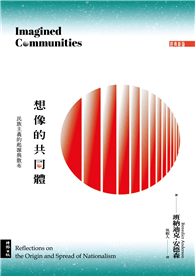This monograph presents new results on the analysis and design of control of discrete-time linear dynamical systems using sparse actuator control. Sparsity constraints on control inputs arise naturally in the inputs of several linear systems due to limited resources such as computational power, energy, and communication bandwidth, or the underlying physics. The monograph deals with two types of sparsity constraints: time-varying and time-invariant supported sparse control inputs. It first provides a detailed theoretical discussion on controllability under sparsity constraints, including algebraic necessary and sufficient conditions for ensuring controllability. Several related formulations, covering stabilizability, output controllability, and nonnegative controllability under sparsity constraints, are also presented. Further, for sparsely controllable systems, the monograph describes two efficient, systematic, and rigorous approaches to designing sparse control inputs: compressed sensing algorithms and spare actuator scheduling algorithms. Overall, the concepts covered in the monograph provide various sparsity models, algorithms, and analysis tools that are readily accessible to systems and control, signal processing, and applied mathematics readers.
| FindBook |
有 1 項符合
Sparse Actuator Control of Discrete-Time Linear Dynamical Systems的圖書 |
 |
Sparse Actuator Control of Discrete-Time Linear Dynamical Systems 作者:Joseph 出版社:Now Publishers 出版日期:2024-09-05 語言:英文 規格:平裝 / 112頁 / 23.39 x 15.6 x 0.61 cm / 普通級/ 初版 |
| 圖書館借閱 |
| 國家圖書館 | 全國圖書書目資訊網 | 國立公共資訊圖書館 | 電子書服務平台 | MetaCat 跨館整合查詢 |
| 臺北市立圖書館 | 新北市立圖書館 | 基隆市公共圖書館 | 桃園市立圖書館 | 新竹縣公共圖書館 |
| 苗栗縣立圖書館 | 臺中市立圖書館 | 彰化縣公共圖書館 | 南投縣文化局 | 雲林縣公共圖書館 |
| 嘉義縣圖書館 | 臺南市立圖書館 | 高雄市立圖書館 | 屏東縣公共圖書館 | 宜蘭縣公共圖書館 |
| 花蓮縣文化局 | 臺東縣文化處 |
|
|
圖書介紹 - 資料來源:博客來 評分:
圖書名稱:Sparse Actuator Control of Discrete-Time Linear Dynamical Systems
|











